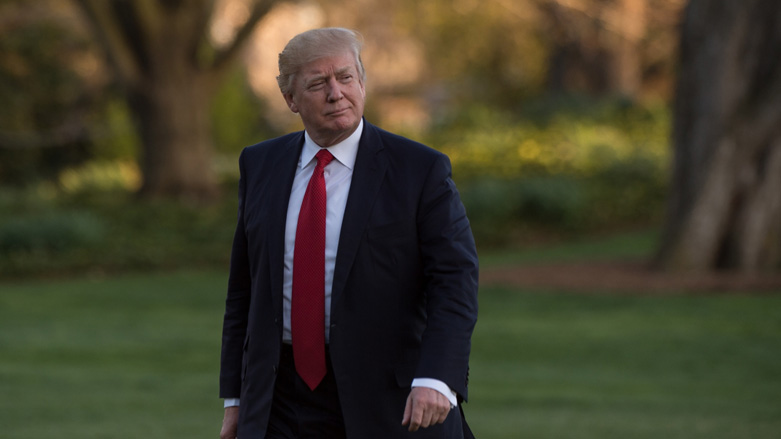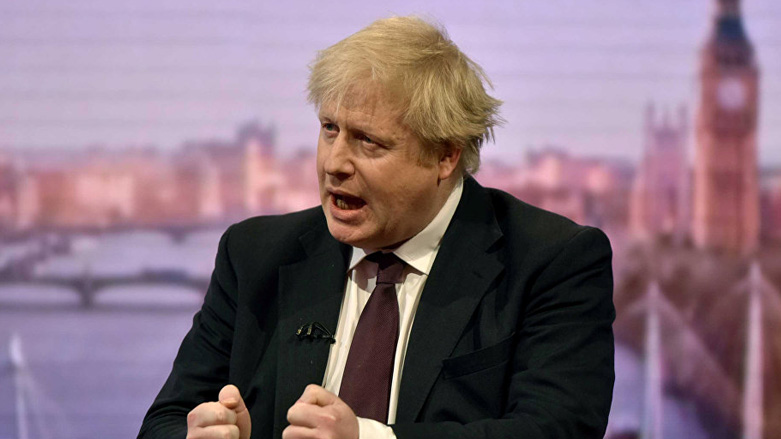US leads mass expulsion of Russian diplomats

WASHINGTON DC, United States (Kurdistan 24) – On Monday, the US announced the expulsion of 60 Russian diplomats in response to Moscow’s March 4 attempt to assassinate Sergei Skripal, a former Russian spy living in Britain, using a deadly nerve agent.
At least 21 other countries have followed suit, including 16 from the European Union, as well as Canada, Norway, Ukraine, Australia, and Albania. That is in addition to the 23 Russian diplomats Britain expelled last week.
In total, nearly 140 Russian officials are being sent home. British Prime Minister Theresa May described it as the largest such set of expulsions.
Moscow denies any involvement in the attempt on Skripal’s life. It denounced the expulsions as “a provocative gesture” and has threatened to respond in kind.
Additionally, the US on Monday ordered Moscow to close its consulate in Seattle.
Last summer, Washington ordered the closure of the Russian consulate in San Francisco and a chancery annex in Washington, as well as a consular annex in New York.
Those measures were taken in response to Moscow’s demand that the US cut the number of its diplomats to equal the number of Russian diplomats in the US: 455. Moscow’s demand followed Congressional legislation imposing sanctions for Russian interference in the 2016 elections.
In announcing the expulsions on Monday, senior US officials denounced the “unacceptably high number of Russian intelligence operatives” in the US, even as they said that “over 100 Russian intelligence officers are currently in the US.”
They explained that the US reserved “the right to take further action.”
The State Department denounced the attempted poisoning as an “outrageous violation of the Chemical Weapons Convention and breach of international law.”
The senior US officials who spoke to reporters made clear that the expulsions were not merely in response to the attempted murder of Skripal, but to a series of “destabilizing and aggressive actions.”
Various countries, including the US, UK, France, and Germany, have charged that Russia has sought to interfere in their elections.
In Syria, the US has sought to enforce a ceasefire, unanimously approved by the UN Security Council last month. However, Damascus has flagrantly flouted the ceasefire, and the US has repeatedly blamed Moscow for failing to constrain its Syrian ally.
Additionally, the Syrian regime has repeatedly used chemical weapons against its domestic opponents—although, in 2013, Damascus was supposed to surrender all its chemical agents to the Organization for the Prohibition of Chemical Weapons (OPCW) for destruction.
The agreement, which averted a US retaliatory strike for Syria’s use of sarin gas in Eastern Ghouta, was underwritten by Moscow. The OPCW declared the Syrian material destroyed in 2016.
However, the following year, as the regime again began to use chemical weapons, it became evident that Damascus had retained proscribed material. The US repeatedly charged that Russia bore responsibility for the regime’s continued use of such weapons.
One well-informed former US intelligence source suggested that the problem is much greater, however. Moscow has no regard for the treaties banning chemical weapons, and it has aided Syria and Iran in developing their own programs, he told Kurdistan 24.
Paul Davis, who during the Cold War was responsible for helping to protect US soldiers against chemical and biological weapons, advised Kurdistan 24 that a very considerable danger loomed in the background: namely, the terrorist use of such agents.
Skillfully deployed, they could “dwarf” the casualties that America suffered on 9/11, he said.
Editing by Karzan Sulaivany

